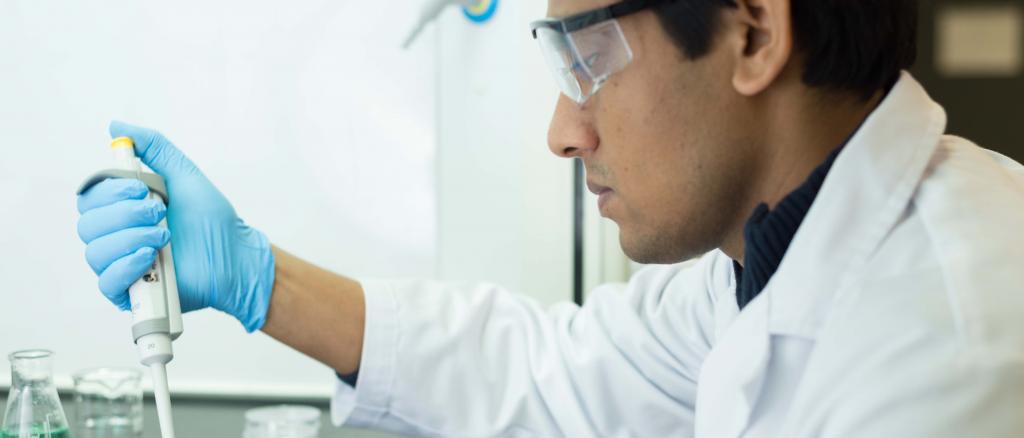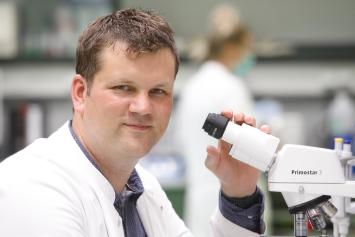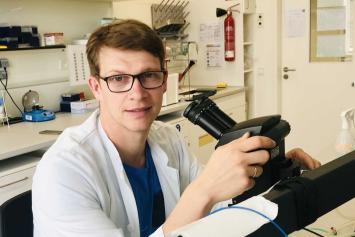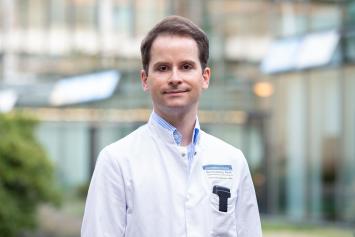
Bad Homburg v.d. Höhe, February 16, 2023 – Last year the foundation Else Kröner-Fresenius-Stiftung (EKFS) awarded three Else Kröner Clinician Scientist Professorships. Within the scope of this funding line, which had announced its first call for applications in 2019, successful and advanced Clinician Scientists were called upon in 2022 to apply for an Else Kröner Clinician Scientist Professorship for the fourth time, a position funded by EKFS and designed for a maximum of ten years. Each professorship is endowed with a total of up to one million euros.
A position as professor that splits work time in half for research and patient care will be financed for up to ten years using the foundation’s resources. “Though there are meanwhile programs in many places that provide the next generation with a course of training like this, the attractiveness of a career path as Clinician Scientist nonetheless remains limited because a lack of suitable follow-up positions exists once the Clinician Scientist programs are concluded,” explains Professor Dr. Michael Madeja, Chairman of the Management Board at EKFS. That’s why EKFS announces the Else Kröner Clinician Scientist Professorships once a year as a problem-solving approach.

New systems biology approaches toward studying kidney diseases: PD Dr. Christoph Kuppe, MHBA, Clinic for Renal and Hypertensive Disorders, Rheumatological and Immunological Diseases (Med. Clinic II), RWTH University Hospital of Aachen
Chronic kidney diseases that develop above all in the course of elevated blood pressure and elevated blood sugar levels pose an increasing problem for healthcare systems worldwide. In the project funded by EKFS, PD Dr. Christoph Kuppe and his team research new pathophysiological bases regarding disease mechanisms in chronic renal diseases. The goal is the development of new therapies using new, patient-centered methods. In the first step, a “map” of regulatory gene changes is drawn up for each kidney cell to obtain a better understanding of pathophysiological alterations. In addition, these data are used to enable a disease’s progression in patients to be predicted better.

Function and interaction between the blood-brain barrier and neuronal excitability as therapeutic strategies in the case of cerebral ischemia and central autoimmunity: Jun.-Prof. Dr. Timo Uphaus, Department of Neurology, University Medical Center, Johannes Gutenberg University Mainz
The demise of neuronal cells causes disabilities in the case of multiple sclerosis (MS) and a stroke. Jun.-Prof. Dr. Timo Uphaus researches the molecular causes of neuronal cell death in the course of these diseases. The focus thereby lies on the blood-brain barrier and its significance for the functioning of neural connections along with the influence of neuronal excitability on their survival. From the knowledge gained from these findings, “neuroprotective” therapy approaches are developed whose effectiveness will be tested in randomized clinical studies. The aim is to evolve innovative therapeutic strategies for treating MS and strokes, and to enable their application in clinical practice.

Clinical translation of next-generation imaging biomarkers using artificial intelligence: apl. Professor Dr. Philipp Vollmuth, MBA, Department of Neuroradiology, Heidelberg University Hospital
In modern medicine, and especially in the field of radiological imaging, huge quantities of data are produced – so much that medical diagnosis of the images poses an increasingly time- and labor-intensive challenge. The utilization of artificial intelligence (AI) promises a major potential here in achieving synergetic effects: Activities that are carried out best by AI algorithms can be combined with those best suited for medical professionals. Within the scope of the Else Kröner Clinician Scientist Professorship, AI is used to develop new kinds of solution approaches to enable improved radiological diagnostics and therapy management. The research activities concentrate particularly on pathologies from the diagnostic spectrum of neuroradiology – the focus is placed above all on brain tumors and strokes. The methodological emphases lie in establishing continuously learning, multicentrically validated and interpretable AI models, because they are going to have a central role for the successful translation of clinically applicable AI in radiology.
Else Kröner-Fresenius-Stiftung (EKFS) – Advancing research. Helping people.
Else Kröner-Fresenius-Stiftung is a non-profit foundation dedicated to the funding and advancement of medical research and the support of humanitarian projects. To date the foundation has funded around 2,300 projects. With an annual funding volume currently amounting to over 60 million euros it is the largest foundation in Germany that actively funds and supports medicine. You can find more information at: www.ekfs.de
Presse Contact
Else Kröner-Fresenius-Stiftung
Bianka Jerke
Presse- und Öffentlichkeitsarbeit
Tel.: + 49 6172 8975-24
eMail: b.jerke@ekfs.de